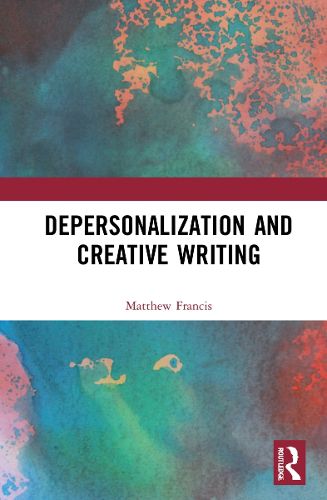Readings Newsletter
Become a Readings Member to make your shopping experience even easier.
Sign in or sign up for free!
You’re not far away from qualifying for FREE standard shipping within Australia
You’ve qualified for FREE standard shipping within Australia
The cart is loading…






Depersonalization and Creative Writing: Unreal City explores the common psychological symptom of depersonalization, its influence on literature and the insights it can provide into the writing process.
Depersonalization is a distressing symptom in which sufferers feel detached from their own selves and the world. Often associated with psychological disorders, it can also affect healthy people at times of stress. Beginning with a first-hand account of the experience, the book goes on to argue that many well-known literary texts, including Camus's The Outsider and Sartre's Nausea, evoke a similar psychological state. It shows how a concept of depersonalized writing can be found in the work of literary theorists from widely different traditions, including T.S. Eliot, Roland Barthes and Viktor Shklovsky. Finally, it maintains that creative writers can make use of the lessons learned from a study of depersonalization to arrive at a deeper understanding of writing.
Given this knowledge, the controversial writing teacher's maxim show, don't tell, so often misapplied or misunderstood, can be repurposed as a practical instruction for taking students' writing to a new level of sophistication and wisdom.
$9.00 standard shipping within Australia
FREE standard shipping within Australia for orders over $100.00
Express & International shipping calculated at checkout
Depersonalization and Creative Writing: Unreal City explores the common psychological symptom of depersonalization, its influence on literature and the insights it can provide into the writing process.
Depersonalization is a distressing symptom in which sufferers feel detached from their own selves and the world. Often associated with psychological disorders, it can also affect healthy people at times of stress. Beginning with a first-hand account of the experience, the book goes on to argue that many well-known literary texts, including Camus's The Outsider and Sartre's Nausea, evoke a similar psychological state. It shows how a concept of depersonalized writing can be found in the work of literary theorists from widely different traditions, including T.S. Eliot, Roland Barthes and Viktor Shklovsky. Finally, it maintains that creative writers can make use of the lessons learned from a study of depersonalization to arrive at a deeper understanding of writing.
Given this knowledge, the controversial writing teacher's maxim show, don't tell, so often misapplied or misunderstood, can be repurposed as a practical instruction for taking students' writing to a new level of sophistication and wisdom.